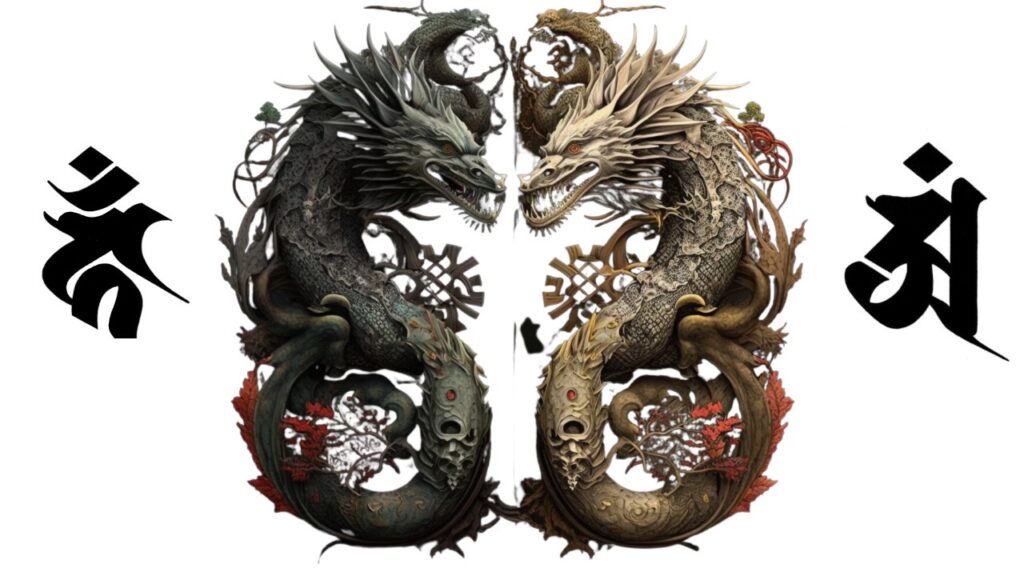

龍神 難陀竜王と跋難陀(ばつなんだ:梵 उपनन्द Upananda
龍神とは、日本の神道や仏教において、龍を神格化した存在のことを指します。龍は古来から神秘的な生き物として扱われ、水や雨、豊穣、長寿、神力などの象徴として信仰されてきました。
一方、難陀竜王(なんだりゅうおう)と跋難陀(ばつなんだ)は、仏教に登場する龍神の一種です。彼らは、釈迦牟尼仏が説法を行っていた時代に、龍王の身を持つ二人の修行者であったとされています。
難陀竜王は、釈迦牟尼仏の弟子の一人であり、仏教の教えを実践し、仏の教えに基づく行為を行っていました。彼は仏教の教えを守り、修行者たちに助言を与えることで知られています。
一方の跋難陀は、難陀竜王とは対照的に、仏教の教えを破る行為を繰り返していました。しかし、ある時、跋難陀は自らの過ちを悔い改め、仏教の教えを受け入れ、仏陀に帰依したとされています。
このように、難陀竜王と跋難陀は、仏教の教えを通じて、自らの行いを反省し、成長しようとする姿勢を表しています。彼らの物語は、人々に仏教の教えを示し、自己の改善を促すことを訴えかける教訓として伝えられています。
Dragon God: Dragon Dragon King Disturbance and Disappearance
Ryujin refers to the existence of a deified dragon in Japanese Shinto and Buddhism. Dragons have been treated as mystical creatures since ancient times, and have been worshiped as symbols of water, rain, fertility, longevity, and divine power.
On the other hand, Nanda Ryuo and Batsu Nanda are types of dragon gods that appear in Buddhism. They are said to have been two practitioners of the Dragon King during the time when Shakyamuni Buddha was preaching.
Nanda Ryuo was one of the disciples of Buddha Shakyamuni, who practiced the teachings of Buddhism and performed acts based on the Buddha’s teachings. He is known for adhering to Buddhist teachings and advising practitioners.
On the other hand, in contrast to Nando Ryuo, Hakunuda repeatedly violated the teachings of Buddhism. However, it is said that one day he repented of his mistakes, accepted the teachings of Buddhism, and took refuge in the Buddha.
In this way, Nandaryuo and Hananda express the attitude of reflecting on their own actions and trying to grow through the teachings of Buddhism. Their stories are passed down as a lesson to show people the teachings of Buddhism and encourage them to improve themselves.




